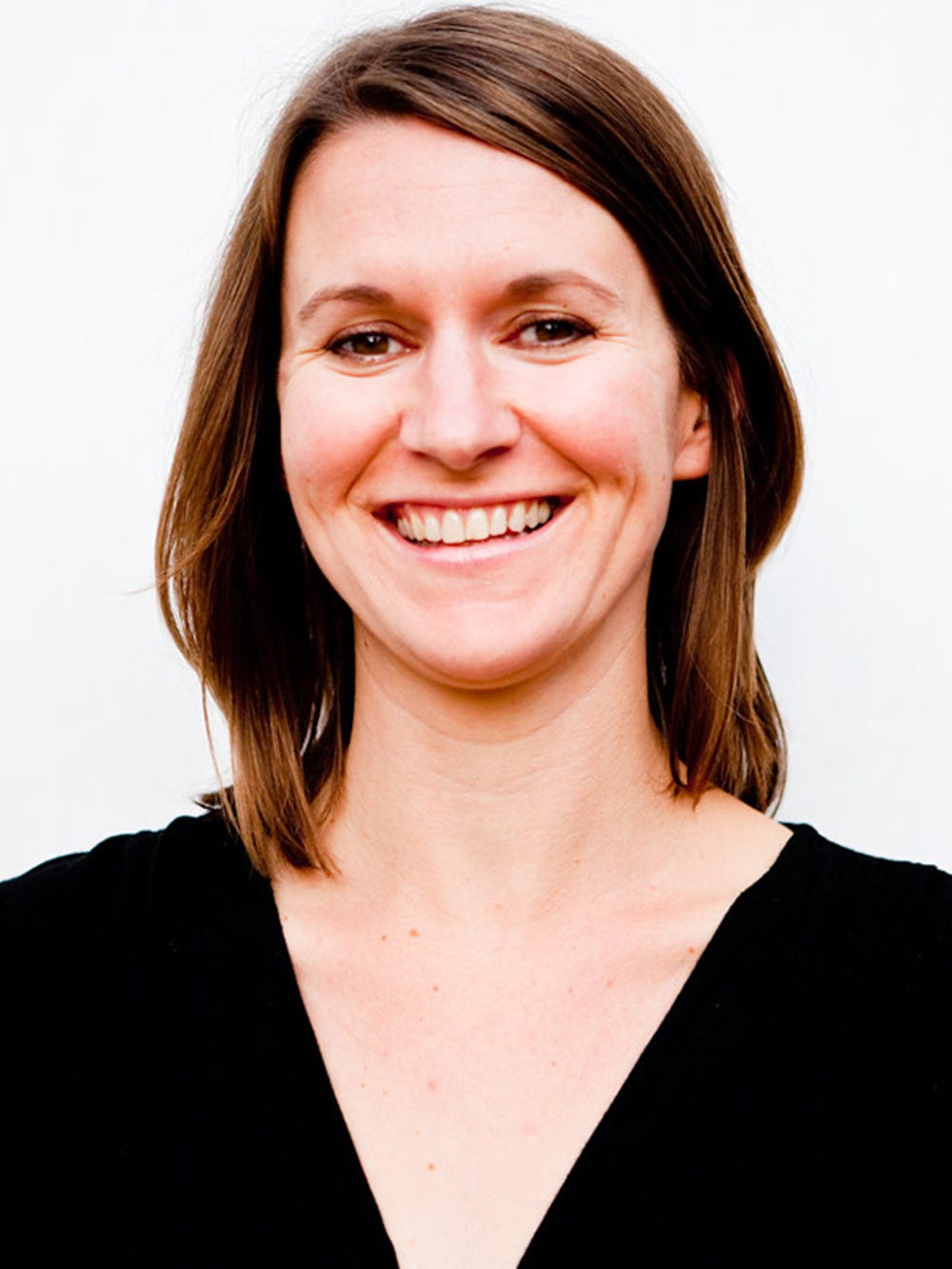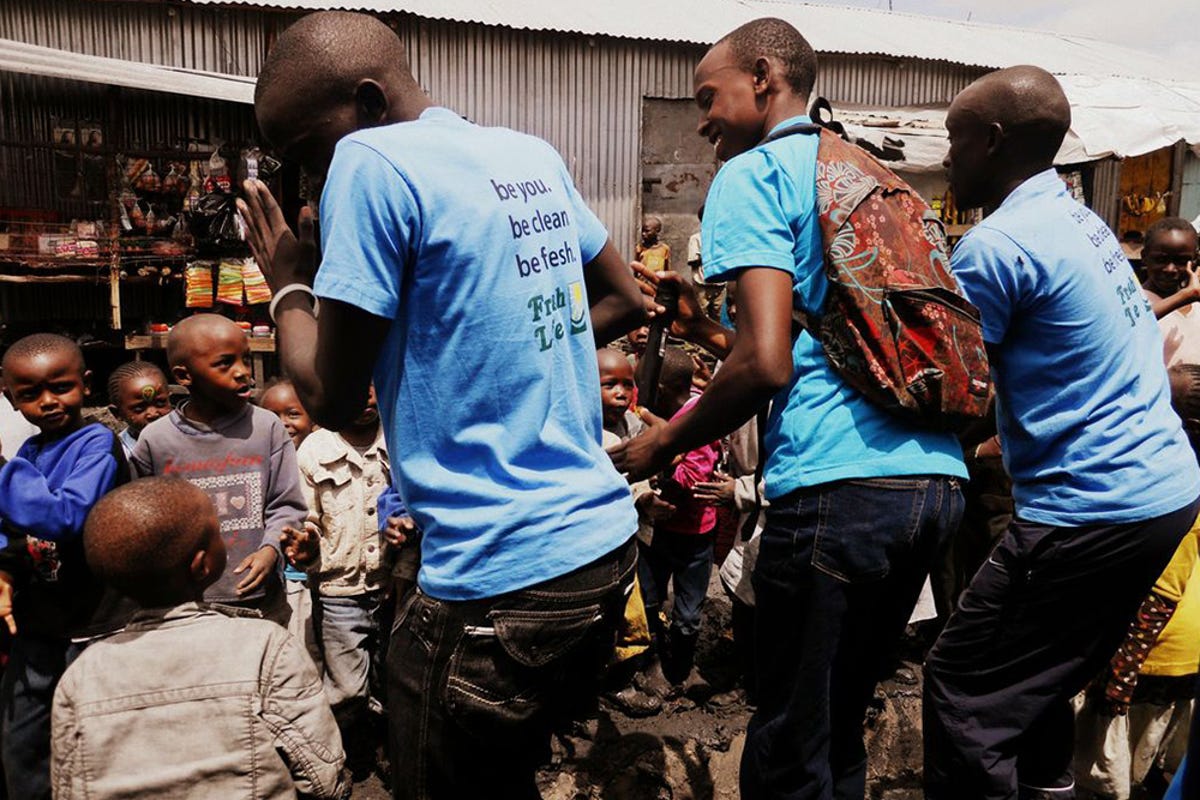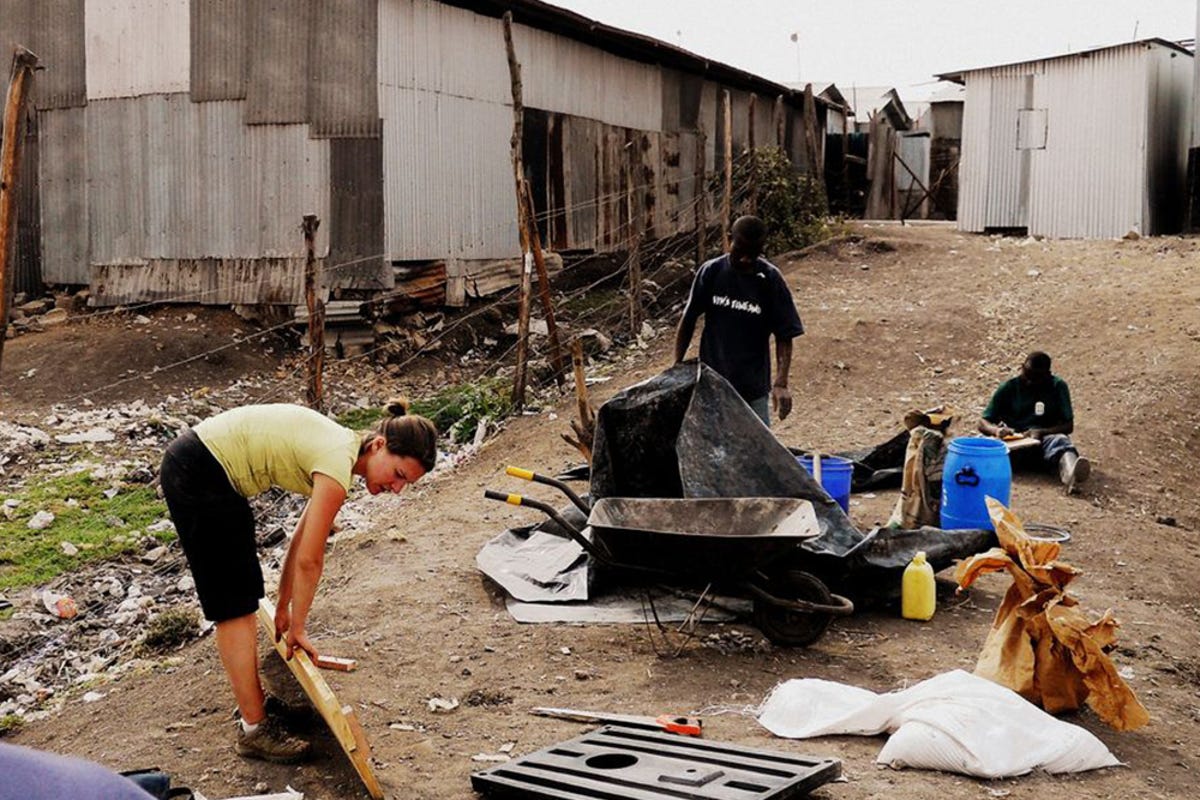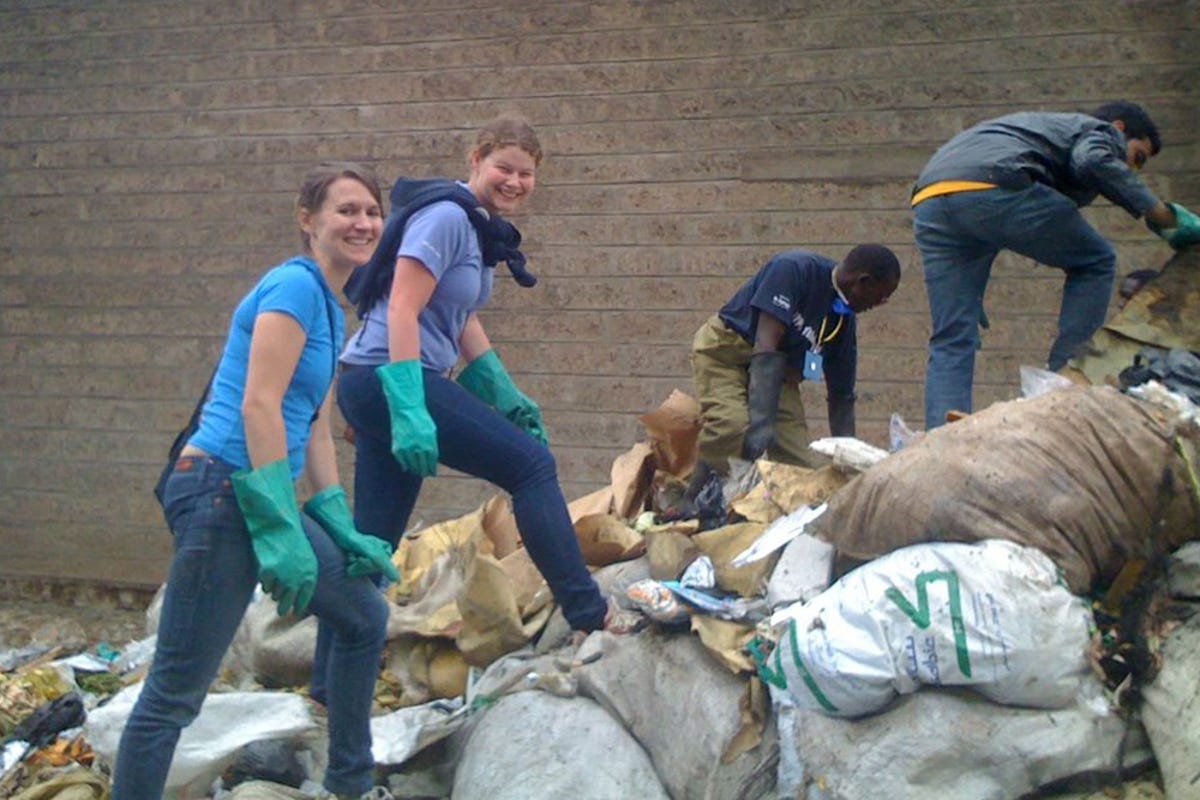Fellow Portrait
Lindsay Stradley
Sanergy

Sanergy provides Kenyan slums with affordable sanitation units that facilitate clean transportation of waste, reprocessed into energy and fertiliser.
Anglophone and Lusophone Africa
KENYA
Fellow
2012
Updated March 2012
If someone had asked Lindsay Stradley five years ago whether she thought she’d be building toilets in the slums of the developing world, she probably would have looked incredulous. But Lindsay, 31, is a born problem-solver, so when she was presented with the sanitation problems in Kenya’s slums, where a lack of access to clean toilets causes health hazards and disease, she set about looking for the solution. ‘Sanitation options in slums range from pit latrines to public toilets – which are expensive and rare due to a lack of large plots of land,’ she says. ‘There’s also open defecation, makeshift holes in the ground and “flying toilets”, plastic bags that are tossed into garbage or by the roadside. So how to make it profitable, and thus sustainable, to provide sanitation services in slums?’

Make way for a new solution
To find the answer, Lindsay partnered with two fellow students from the MIT Sloan School of Management, where she received her MBA, and brought in civil engineering, chemical engineering and architecture graduates. Together, they have created the Fresh Life toilet: an individual sanitation unit that is hygienic yet inexpensive, at US$200 a unit. It is made of durable concrete, offers privacy and collects waste cleanly and safely through an innovative water-free system that separates liquid from solid waste into two different 30-litre barrels. These are double-sealed and transferred daily in wheelbarrows to Sanergy’s processing plant by sanitation workers, creating extra jobs. In comparison, waste from pit latrines is placed in large steel drums ‘sealed’ with a cloth, which workers roll through the streets. ‘They’re known as “ambulance drivers”,’ says Lindsay, ‘because everyone jumps out of their way!’ Often these drums are emptied directly into ditches or waterways. ‘But human waste has high methane content, with higher carbon emissions than CO2. When dumped instead of being recycled, it pollutes the atmosphere and the environment.’
Sanitation workers perform an essential service but are marginalised in the community. ‘At Sanergy we provide proper training and equipment to bring newfound respect to their job.’ The company also gives new life to waste by using it to generate a biogas to be burned for electricity, which is sold to the national grid, and by transforming it into organic fertiliser for crops, another good source of revenue. ‘Kenya imports most of its fertiliser: a “home-grown” variety would be cheaper in a market that represents several billions of dollars. Our organic fertiliser is free of pathogens and heavy metals, which is good for crops and the soil too.’
I’m building a sustainable business and I’m here to stay.

Business in a box
Having started out in 2010 with a team of eight, the number of employees at Sanergy – 75% of whom are Kenyan – leaped to 45 by mid-2012. The company has raised US$400,000 in angel investment and is seeking a further US$200,000 for its development. It has launched its operations in Nairobi, where over 60% of the city’s population lives in slums, which keep growing due to high migration. ‘In this context, you can’t eliminate the slums; the better question is how to upgrade them and offer their population a better level of service.’
Fresh Life and its accompanying services are franchised as a ‘business-in-a-box’ to local entrepreneurs, who operate the toilet at a fee of US$0.06 per use. ‘We provide installation, training and support, plus branding and marketing back-up,’ says Lindsay. Land is an issue in slums, so initial franchisees are existing entrepreneurs who can provide the land on which to place the unit and start up the business correctly. So far, Fresh Life has launched in 22 pilot locations, serving approximately 1,000 users and collecting one tonne of human waste from the community each week. It has also been installed in a primary school, which advertises the toilet as a true incentive for enrolment.

A dedicated entrepreneur
So what did Lindsay do before building sanitation solutions? She spent three years at Google and has an impressive entrepreneurial tale: in 2005, she built a school! ‘I was on a Teach For America placement in inner-city New Orleans when Hurricane Katrina struck, flooding our school.’ Undaunted, Lindsay and some colleagues set about building a new charter school, ‘charter means publicly funded but autonomous: i.e., you build it from scratch.’ Within two months it was one of only five schools open in the city. Not surprising, perhaps, for a woman who, as a child, used to tell people she would be the first female President of the United States… The job is still open! ‘Except I’m in Kenya now,’ says Lindsay. ‘I’m building a sustainable business and I’m here to stay.’


